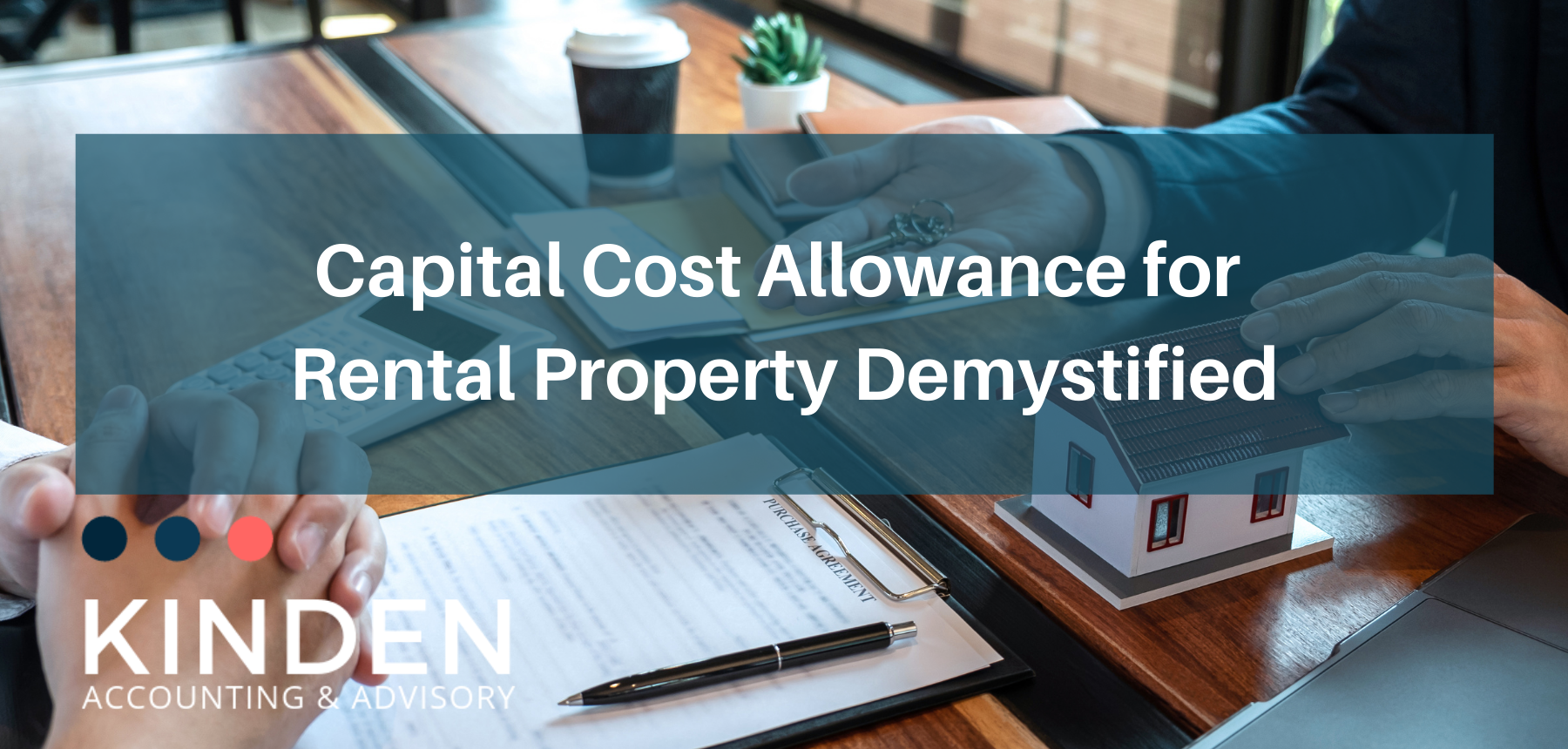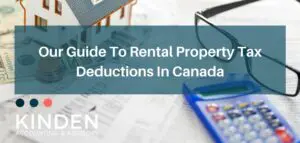
Did you know that in addition to making an income with rental buildings, you could also avail substantial tax deductions? I mean what’s the point of renting out a property only to have to pay the profits earned in taxes?
If you are a rental property owner and are seeking to learn more about how CCA can help you, well, you have come to the right place. Capital Cost Allowance (CCA) helps businesses cover the cost of asset depreciation at varying rates over time. This allows rental property owners to avoid paying heavy taxes on rental income earned.
Today, we’ll be going over how you can claim your CCA, especially if you work a lot with rental properties, and even with other types of investments and assets.
What Are The Capital Cost Allowance Deductions?
CCA is a true reflection of the fair market, as it is a tax deduction that helps you cover asset depreciation costs for various types of capital expenditures including rental properties, buildings, equipment used for business, motor vehicles, and even furniture.
When it comes to rental properties, this can also include different rental expenses like maintenance fees, insurance, mortgage interest, utilities, property taxes, advertising, and property management fees.
One can’t use a CCA claim to produce a rental loss. Also, you can’t just claim CCA on every piece of investment property and income property you own, and neither can you make a claim for wear and tear on your principal residence.
The Important ‘Stuff’ to Know When Claiming Your CCA
Under the Canadian taxation system, the Canada Revenue Agency governs matters relating to CCA. They have very specific requirements for making a claim. A small part of which is filling out and filing Form T776.
In order to fill out this form, you’ll need to be aware of all your depreciable properties and define them in your CCA claim.
Depreciable properties include properties and assets that are prone to devalue as a result of wear and tear from use over time. Business and professional equipment, automobiles, and rental properties are all examples of depreciable assets.
In the case of rental properties, this means you can write off the capital cost of the rental property, which includes the property price, legal fees incurred because of the purchase, and the cost of basic equipment, appliances, and furniture that tenants would come to expect when renting a building.
However, If you’re renting out part of your home, and are expecting to claim a CCA for the same, then you need to be very careful, as any discrepancy could result in an adverse outcome with the Canada Revenue Agency. It would serve well to speak to a Kinden tax expert for specific cases, but the general concept is that if you have a depreciable property or asset, then you may be eligible for claiming a CCA against it.
How to Calculate CCA?
Ok, so now for the boring bit. But we will try to make it as fun as possible. We promise!
Calculating CCA boils down to the type of depreciable property you own and are claiming the CCA against. Another factor to consider is also when the property was purchased. The Canada Revenue Agency has divided different types of depreciable properties into classes and prescribed a specific rate against each class (rental properties are one of the common classes).
So all one needs to do is apply the specified rate against the purchase price of your depreciable property. Still with us? Excellent, it’s time for the real fun to begin. Now, for the following year, you would apply the same rate to the purchase price as before. However, you will also minus the amount that you had claimed as CCA against that property in the previous year. This is called the declining balance method as the claimable balance declines with each passing year.
Let’s look at an example.
Let’s say you purchased a rental property for $100,000 in 2020, and your specified rate for CCA is 10%. Do some quick mental math and you will find your claim amount would be $10,000. If you’ve claimed the $10,000 in the previous year, then you would be applying the same rate of 10% but it would be on $90,000. The $10,000 you had claimed in the previous year would be deducted from the purchase price of $100,000.
Each year, the amount you claim would be deducted from the purchase price and the specified rate would apply to the remaining amount.
So,
Year 1 – $100,000 (purchase price) x 10% (CCA rate) = $10,000
Year 2 – $100,000 (purchase price) – $10,000 (1st year CCA) = $90,000
Year 2 CCA = $90,000 x 10% = $9000
Year 3 – $100,000 – $10,000 – $9,000 = $81,000
Therefore, Year 3 CCA would be = $81,000 x 10% = $8100 and so forth.
You don’t have to claim the full amount in a given year and can claim just a part of it or forego the claim altogether. This is an option that is sometimes exercised by people who do not have to pay income tax in any given year. Claiming CCA means the amount available for you to claim in future years will be reduced, and you would not be able to avail the benefits of CCA to your advantage.
What Happens If You Sell Your Property?
When you’re selling your rental property and you’ve claimed CCA in the past, a recapture is possible and the proceeds could become a part of your taxable income. This depends largely on the selling price of the property and the depreciated capital cost (the initial cost minus the claimed CCA).
Your recaptured amount would need to be mentioned in your income tax return. Recapture is fully taxable, in contrast to capital gains which are only taxed at 50%. If you had not claimed CCA then you would only be liable for the capital gain and not recapture. This tends to be a major deterrent for people as they cite this reason for not claiming CCA in the first place.
However, one also needs to look at the advantages of claiming CCA. One is that you find tax relief against genuine expenses that you’ve incurred. Moreover, the claimed amount could then be used as an investment in some other security. You end up making more money from these amounts, which offsets any potential recapture you could incur.
Consult With A Qualified Kinden Accountant For All CCA Queries & More!
At the end of the day, the decision to claim a CCA depends on a number of factors. Such as:
- Your current financial circumstances
- Capital costs
- The type of depreciable properties you own
- Your current income tax liabilities
- The applicable tax rate
- Your long-term financial goals
- And maybe even any other investment asset that you might own
However, without guidance, thinking about all these different factors will just cause frustration and confusion. It would serve well to speak to a professional and this is where Kinden CPA can help. With a team of dedicated and trained professionals, rest assured you will have sound advice and will be filing a CCA claim in a manner that most benefits you. With us, by your side, your finances will be kept in order and you’ll find yourself saving on your tax returns while also increasing your rental income.
If you can’t take the boring stuff, well, leave it to us! Kinden Accounting & Advisory Services, your trusted Halifax Accountants. We’ll be your best friend and mentor when it comes to rental property businesses, especially, when it’s tax time. We deal with all things ‘Revenue Canada related’. Tax savings are but the beginning of a brighter more profitable future!



